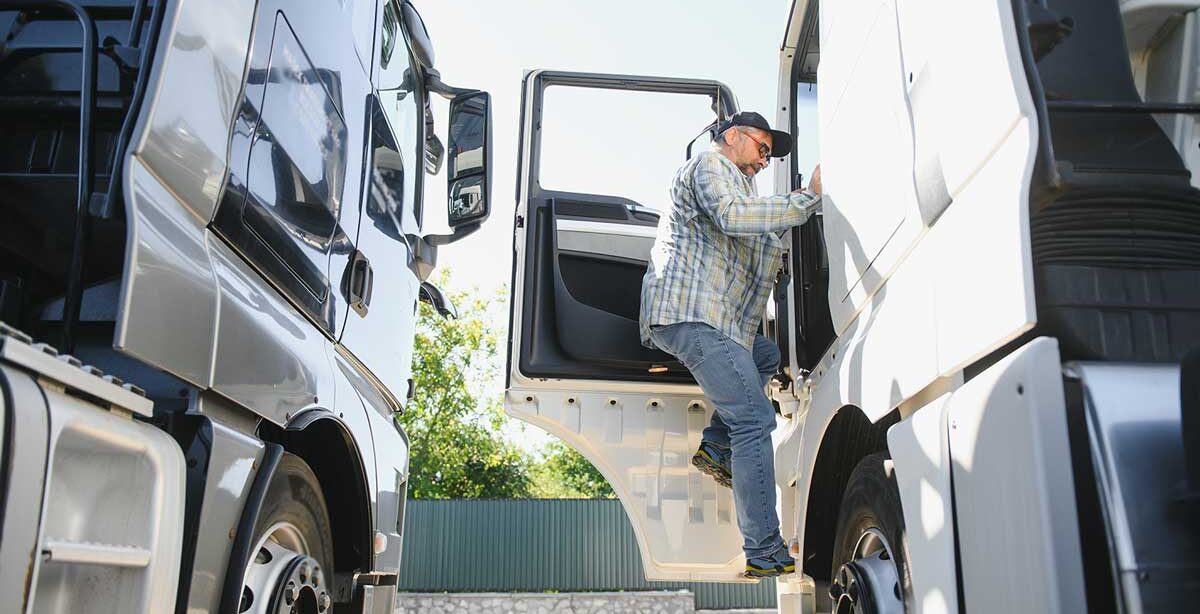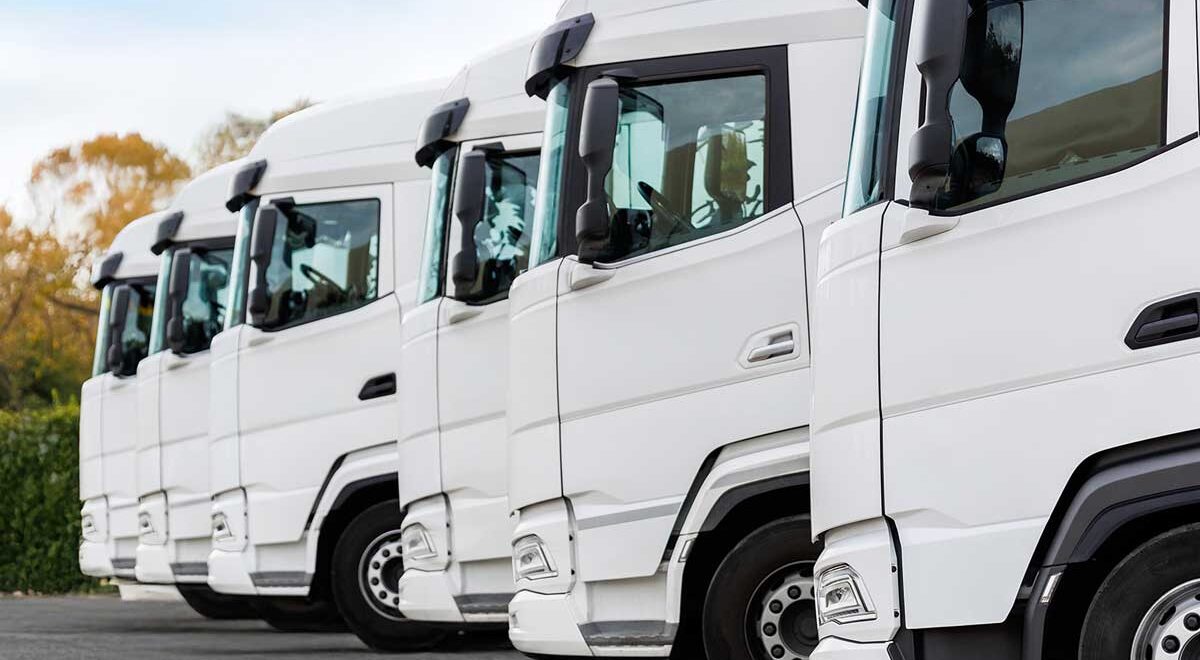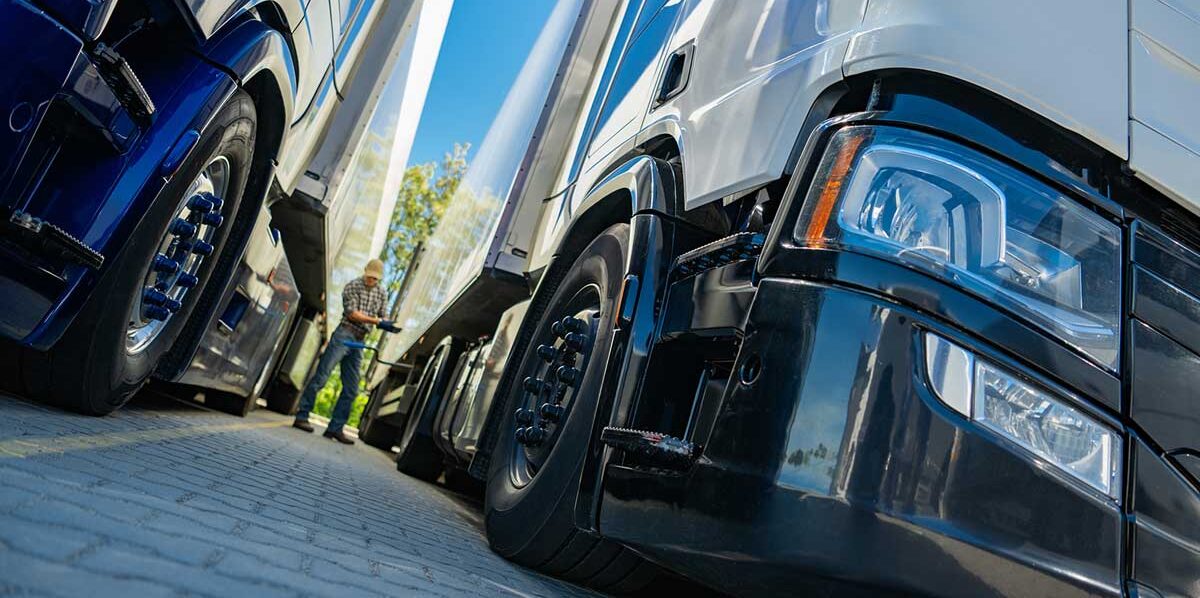Key Takeaways:
- The ELD Mandate requires commercial motor vehicles to use electronic logging devices to accurately record drivers’ Hours of Service, enhancing compliance and road safety.
- Its primary goal is to reduce driver fatigue, a significant factor in truck accidents, by ensuring drivers adhere to regulated driving and rest periods.
- ELD systems must meet specific FMCSA technical standards, including automatic data recording, engine synchronization, tamper resistance, and seamless data transfer during inspections.
- While the mandate applies to most commercial drivers, there are exemptions for short-haul operations, pre-2000 vehicles, and certain specialized driving scenarios.
- Adopting ELDs offers numerous benefits, such as improved road safety, enhanced regulatory compliance, increased operational efficiency, and valuable data-driven insights for fleet management.
Table of Contents
How the ELD Mandate Impacts Trucking and Compliance
Ever wondered if you need that electronic logging device (ELD) in your truck? The ELD Mandate has been a big topic in the trucking industry, and some drivers are confused about the rules.
The mandate, from the Federal Motor Carrier Safety Administration (FMCSA), requires most commercial truck drivers to use ELDs to track their driving hours. This helps make sure drivers aren’t on the road for too long, which can cause fatigue and accidents.
The ELD Mandate is about more than just tracking hours. It’s about making things safer for drivers and everyone on the road. By recording driving time electronically, ELDs help make sure everyone follows Hours of Service (HOS) rules.
These rules limit how many hours drivers can be on the road. This helps prevent drowsy driving and accidents caused by fatigue. The ELD Mandate is a step toward improving safety and accountability in the trucking industry.

The Importance of Compliance
It’s important to follow the ELD Mandate. The FMCSA takes compliance very seriously. They conduct regular roadside inspections and audits to ensure that drivers and carriers are following the rules. If you don’t comply with the ELD Mandate, you could face serious consequences.
These consequences can be costly and disruptive to your business. For example, non-compliance can result in significant fines for both drivers and carriers. These fines can add up quickly and put a strain on your finances.
If you’re caught driving without a compliant ELD or violating HOS rules, you can be placed out of service. This means you won’t be able to operate your vehicle until you resolve the issue, leading to lost time and productivity. Violations of the ELD Mandate can also negatively impact your safety rating.
A poor safety rating can make it harder to get insurance, secure contracts, and maintain a good reputation. By complying with the ELD Mandate, you demonstrate your commitment to safe and responsible trucking operations.
Exemptions Exist
The good news is that not everyone needs an ELD. There are some exceptions to the rule. If you drive a certain type of truck or do specific kinds of driving, you might not need one.
In this guide, we’ll take a closer look at the ELD Mandate, who needs to comply, the risks of not complying, and the exemptions. We’ll also discuss the benefits of ELDs and how Geosavi can help you.
Who Is Affected by the ELD Mandate and What You Need to Know
The mandate is a federal regulation issued by the Federal Motor Carrier Safety Administration (FMCSA). It is designed to improve safety and compliance within the trucking industry. The ELD Mandate doesn’t apply to everyone who drives a truck. Let’s clarify who needs to follow these rules:
CMV Definition
First, you need to know if your vehicle is considered a Commercial Motor Vehicle (CMV). A CMV is generally a vehicle that:
- Weighs more than 10,001 pounds. 1
- Transports hazardous materials that need placards.
- Carries more than 15 passengers (including the driver).
Driver Categories
Even if you drive a CMV, you might not need an ELD. The ELD Mandate generally applies to drivers who:
- Transport goods or property across state lines.
- Transport passengers for money.
- Drive a vehicle that requires a commercial driver’s license (CDL).
Common Misconceptions
There are some misunderstandings about who needs an ELD. Here are a few:
- “My truck is under the weight limit, so I don’t need an ELD.” Even if your truck is under 10,001 pounds, you might still need an ELD if you transport certain hazardous materials or passengers.
- “I only drive within my state, so I don’t need an ELD.” Even if you don’t cross state lines, you might still need an ELD if you meet other criteria, such as transporting passengers for money.
- “I only drive a small box truck, so I don’t need an ELD.” The size of the truck doesn’t always matter. If it meets the CMV definition and you fall under one of the driver categories, you likely need an ELD.
It’s important to check the specific rules to make sure you understand if you need an ELD.
What Are the Risks of Driving Without an ELD
If you’re required to comply with the ELD Mandate but choose to drive without an ELD or with a non-compliant device, you could face serious consequences. The FMCSA is responsible for enforcing the ELD Mandate and takes non-compliance very seriously.
Violating these regulations can result in hefty fines for both drivers and carriers, and you could even be placed out of service, meaning you can’t drive your truck until you have a compliant ELD installed.
These violations can also negatively impact your safety rating, making it harder to get insurance and contracts. It’s important to understand and follow the ELD Mandate to avoid these risks and prioritize safety on the roads.

FMCSA Regulations
The FMCSA is responsible for enforcing the ELD Mandate. They take non-compliance very seriously. Driving without an ELD when you need one is a violation of federal regulations. This can lead to penalties for both drivers and their companies.
Penalties for Violations
The penalties for violating the ELD Mandate can be significant. Here are some of the things you might face:
Fines – Drivers and carriers can be fined hundreds or even thousands of dollars for each violation.
Out-of-Service Orders – If you’re caught driving without an ELD, you can be placed out of service, meaning you can’t drive your truck until you have a compliant ELD installed and are following the rules.
Impact on Safety Ratings – Violations can negatively impact a carrier’s safety rating, which can affect their ability to get business and insurance.
Real-World Consequences
There have been many cases of drivers and companies facing penalties for not following the ELD Mandate. For example, one trucking company was fined over $50,000 for not using ELDs correctly. In another case, a driver was placed out of service for 10 hours because they didn’t have an ELD.
These examples show that the FMCSA is serious about enforcing the ELD Mandate. It’s important to understand the rules and follow them to avoid these consequences.
Who Qualifies for ELD Exemptions and How to Know If You Do
The ELD Mandate aims to improve safety and compliance in the trucking industry. However, recognizing that not all trucking operations are the same, the FMCSA has provided certain exemptions to the rule. These exemptions allow some drivers to operate without using ELDs.
While the ELD Mandate applies to many commercial drivers, there are exceptions. Let’s take a look:
Short-Haul Operations
Drivers who operate within a 150 air-mile radius of their work reporting location and return to the same location at the end of their shift might not need an ELD. This exemption often applies to short-haul truck drivers who make local deliveries. However, there are some limits to this exemption. For example, you might still need an ELD if you cross state lines or transport certain hazardous materials.
Pre-2000 Vehicles
Vehicles made before the year 2000 are generally exempt from the ELD Mandate. This is because many older vehicles don’t have the technology to connect with ELDs. However, if you’ve updated the engine in an older vehicle, you might need to use an ELD.
Driveaway-Towaway Operations
Drivers who transport vehicles as their main job are also exempt from the ELD Mandate. This usually applies to drivers delivering a vehicle from one place to another.
Agricultural Operations
There are special rules for drivers in agricultural operations. During planting and harvesting seasons, these drivers might not need an ELD for a certain number of days. However, they might need an ELD during other times of the year.
Other Exemptions
There are a few other exceptions to the ELD Mandate. For example, drivers who only use paper logs for a limited number of days might not need an ELD.
It’s important to remember that even if you don’t need an ELD, you might still need to keep records of your driving time in other ways. If you’re not sure if you need an ELD, it’s best to check the official rules or talk to an expert.
How to Determine Your ELD Status
Determining whether you need to comply with the ELD Mandate can be a complex process. The regulations contain various exemptions and specific criteria that can be difficult to interpret. It’s essential to understand your obligations to avoid potential penalties and ensure you’re operating legally.

It can be confusing to figure out if you need an ELD. Here’s a simple guide to help:
Step-by-Step Guide
- Check Your Vehicle – Is your vehicle a commercial motor vehicle (CMV)? Remember, a CMV is generally a vehicle that:
- Weighs more than 10,001 pounds.
- Transports hazardous materials that need placards.
- Is designed to carry more than 15 passengers (including the driver).
- Check Your Driving – Do you use your CMV to:
- Transport goods or property across state lines?
- Transport passengers for money?
- Drive a vehicle that requires a commercial driver’s license (CDL)?
- Check for Exemptions – Even if you drive a CMV, you might be exempt from the ELD Mandate if you:
- Operate within a 150 air-mile radius of your work reporting location.
- Drive a vehicle made before the year 2000.
- Transport vehicles as your main job (driveaway-towaway).
- Work in agricultural operations during certain times of the year.
- Meet other specific exemptions.
FMCSA Resources
The FMCSA has information and guidelines on their website to help you figure out if you need an ELD. You can find helpful resources and information on the FMCSA website [insert link to relevant FMCSA page].
Seeking Expert Advice
If you’re still unsure about your ELD status, it’s a good idea to talk to an expert. Companies like Geosavi can give you personalized advice and help you understand the rules.
Benefits of ELDs Even if You’re Exempt
You might be thinking, “If I don’t have to use an ELD, why would I?” Even if you’re exempt from the ELD Mandate, there are still good reasons to consider using these devices.

Improved Safety
ELDs can make driving safer, even for exempt drivers. ELDs track your driving hours automatically. This helps you see how long you’ve been driving and when you need a break. By being more aware of your driving time, you can manage fatigue and lower the risk of accidents.
Increased Efficiency
ELDs can also help you run your trucking business more efficiently. Here’s how:
Better Record-Keeping – ELDs automatically record your driving time, so you don’t have to fill out paper logs.This saves you time and reduces errors.
Route Planning – Some ELDs have GPS tracking and mapping features that help you plan the best routes for your trips. This saves time and fuel.
Fuel Management – ELDs can track fuel usage and help you find ways to save money on fuel costs.
Even if you’re exempt from the ELD Mandate, using an ELD can help you run a safer and more efficient trucking operation.
Why ELD Compliance Is Essential for Fleet Management
The ELD Mandate is an important rule that affects many commercial truck drivers. It’s important to understand if you need to follow this rule and what happens if you don’t. Not following the ELD Mandate can lead to fines and other problems.
However, there are some cases where you don’t need an ELD. It’s important to know the rules and check if you qualify for an exemption. Even if you don’t need an ELD, it can still be a helpful tool for improving safety and efficiency in your trucking business.
ELDs can help you track your hours of service more accurately, reduce paperwork, and improve communication with your drivers. They can also help you identify areas where you can improve efficiency and save money. By understanding the ELD Mandate and using ELDs effectively, you can contribute to a safer and more productive trucking industry.
Comprehensive Support for ELD Compliance
Geosavi is an Arizona company that knows the ELD Mandate well. We have helped businesses follow these rules for many years. We offer ELD devices and services to help trucking companies of all sizes.
At Geosavi, we help our customers understand and follow the ELD Mandate. We offer support and advice to help you use your ELDs to improve your business. We are always happy to answer your questions and help you find what you need.